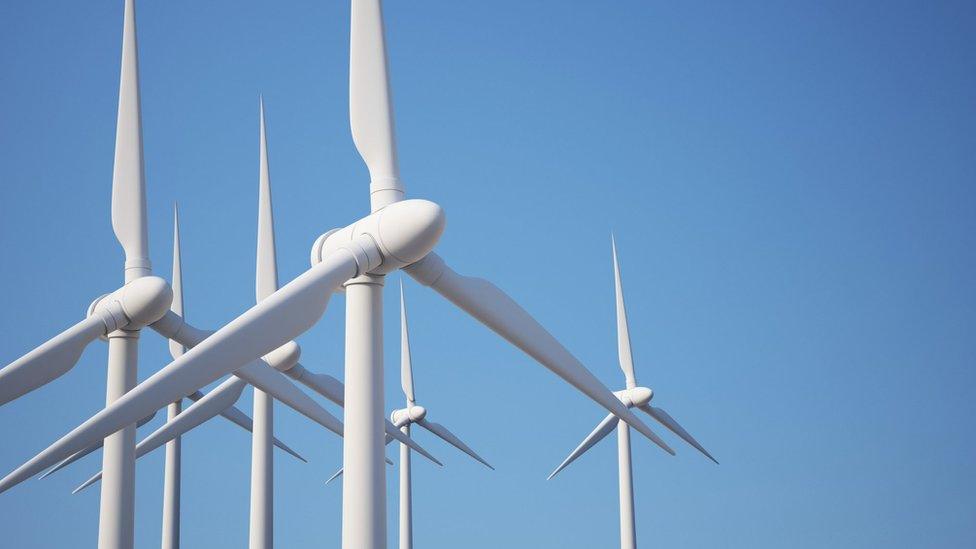Last turbine for first full-scale floating offshore wind farm installed
- Published
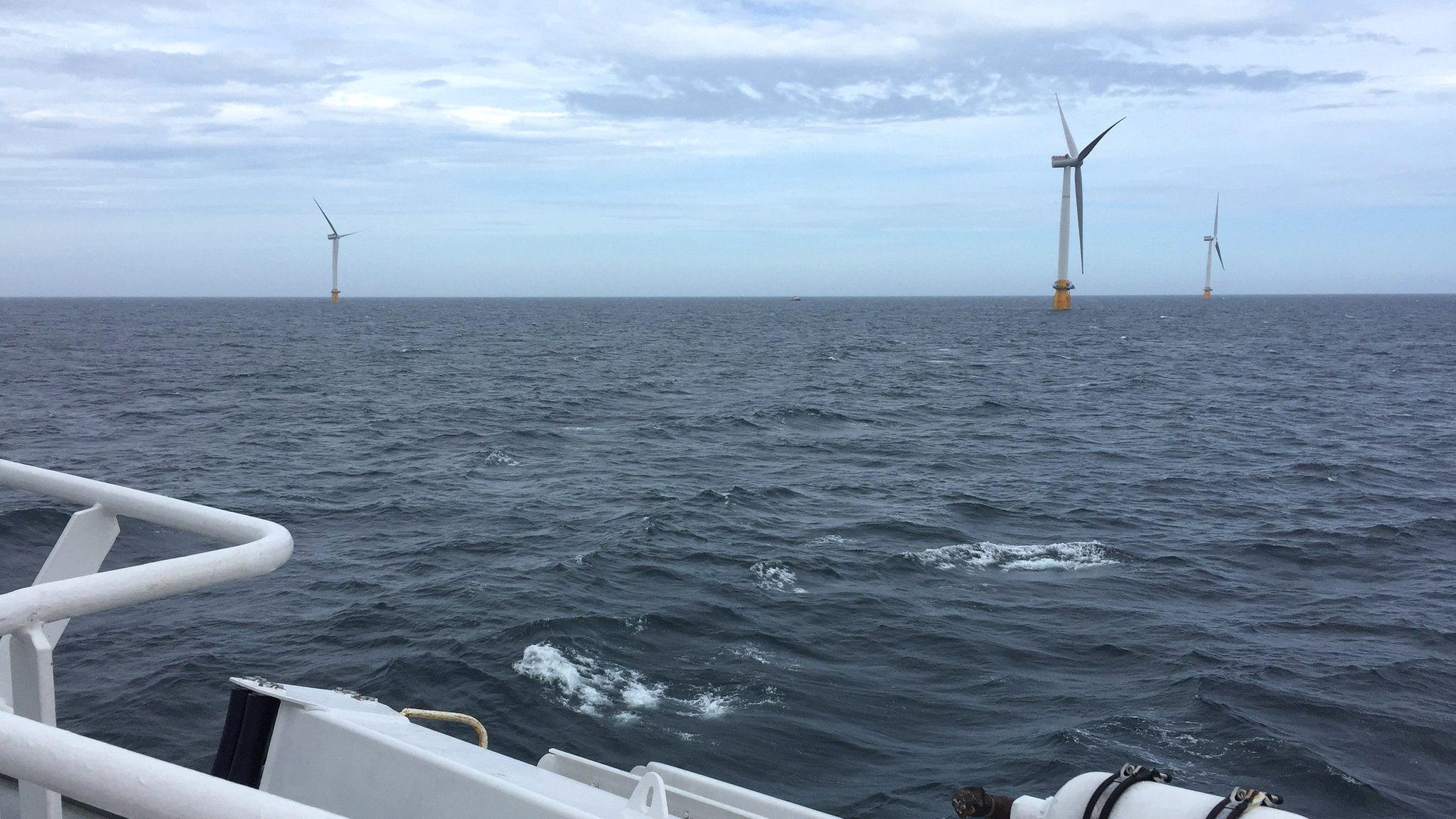
The last turbine has been installed at the world's first full-scale floating offshore wind farm off the Aberdeenshire coast.
Five giant wind turbines make up the Hywind pilot development, about 15 miles (25km) from Peterhead.
The Norwegian oil firm Statoil has been working on developing the project for more than 15 years.
It allows turbines to be installed in much deeper waters than conventional offshore installations.
World's first floating offshore wind farm in Scotland.
Their height from the water line is 172m, which is almost four times the height of the Forth Bridge.
The company is now hooking up the cables and hopes to generate the first electricity in October.
The aim is to generate enough power for about 20,000 homes.
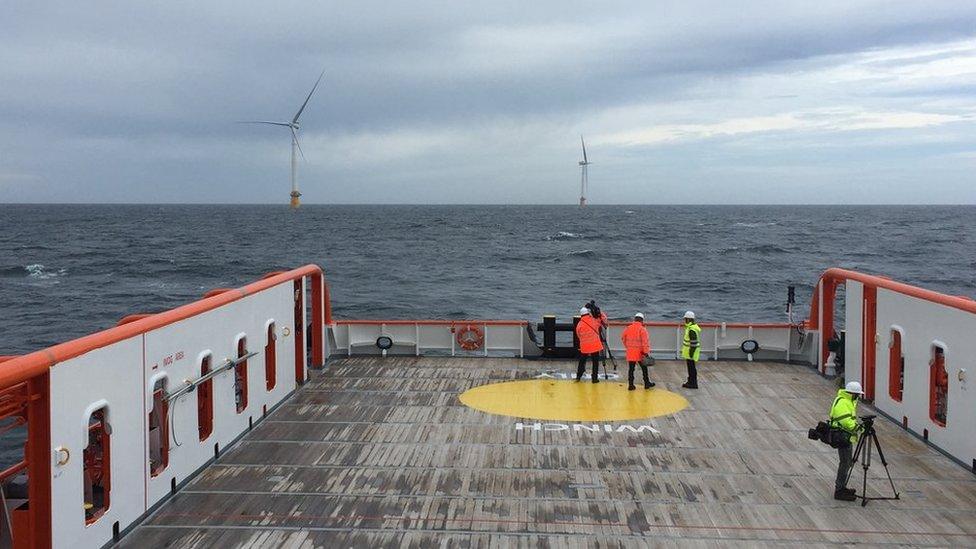
If the pilot site is a success, Statoil hopes to build similar floating wind farms up to four times the size.
This floating wind farm is positioned in water depths of up to 129m whereas those fixed to the seabed are generally at depths of up to 50m.
Statoil believe the technology has the potential to work in water depths of up to 700m.
Average wind speeds at the site are around 22mph.
The Hywind project is being run in collaboration with the Abu Dhabi firm Masdar.
The £190m cost was subsidised by bill-payers under the UK government's Renewable Obligation Certificates.
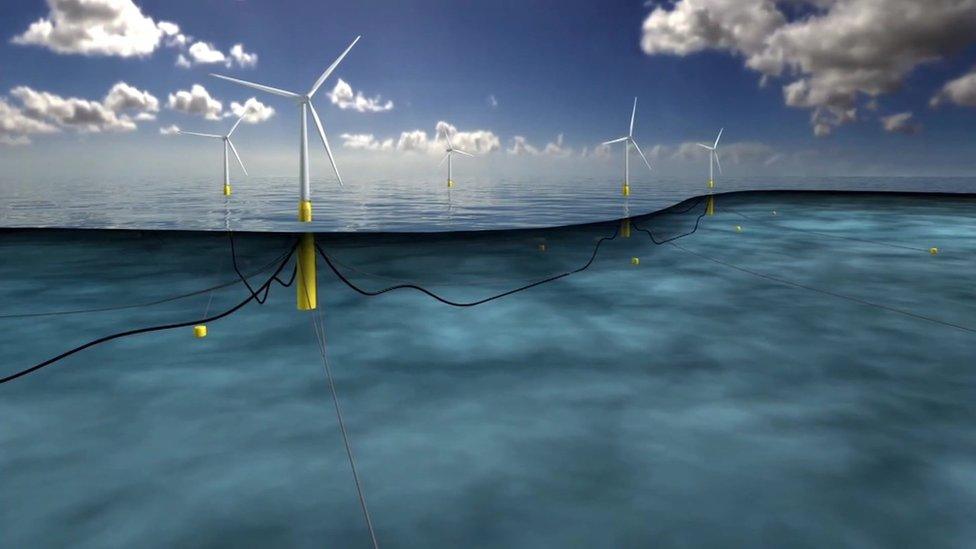
Thick mooring lines will tether the towers to the sea base
The bird charity RSPB Scotland opposed the project, not because it dislikes the technology but because it believes too many offshore turbines in the area have already been approved.
It fears thousands of sea birds may be killed by the offshore wind farms.
The operation to move the turbines into place began last month.
- Published23 July 2017
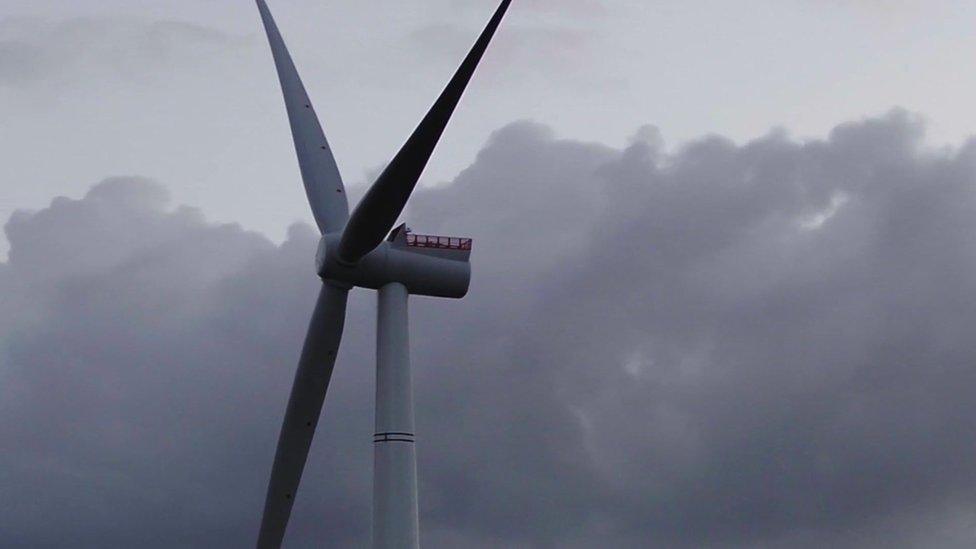
- Published21 May 2017
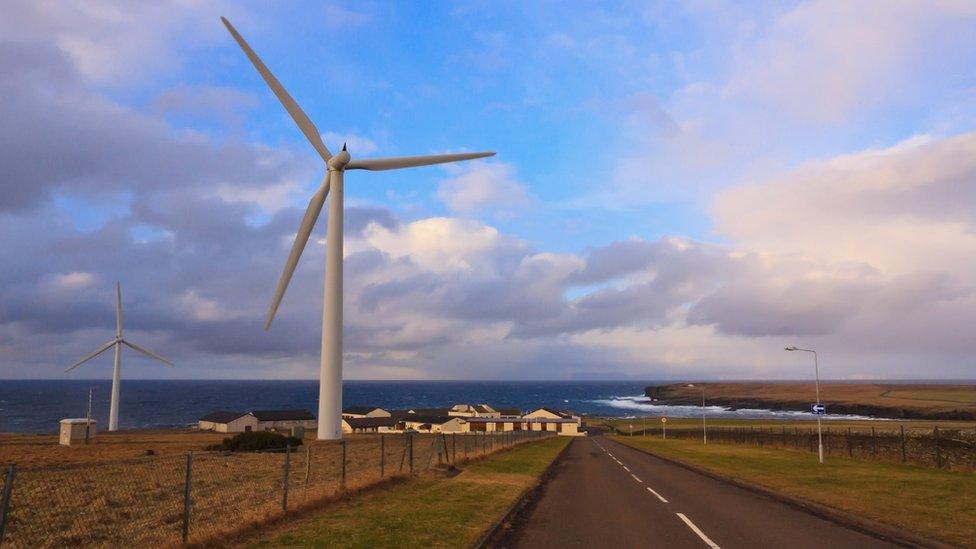
- Published16 May 2017
